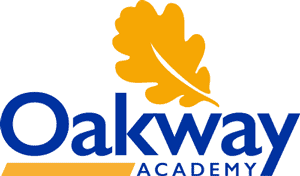What to do if you have a Safeguarding Concern
Within School Hours
Contact the Designated Safeguarding Lead
Claire Byron
Email: c.byron@oakwayacademy.org.uk
or telephone on 01933 678714 and ask to speak to one of our DSL’s.
Outside School Hours
Out of school hours contact the Multi-Agency Safeguarding Hub (MASH) team dial 101 or 0300 126 7000 or visit the following website:
Report a concern or request support | Northampton Children’s Trust (nctrust.co.uk)
Please contact our Safeguarding Director Kay Aitken via Debbie Felce, Assistant to the Trust Executive Team.
Email felced@hattonacademiestrust.org.uk
Telephone 01933 221428
CEOP is here to keep children safe from sexual abuse and grooming online.
You can make a report directly to the CEOP Safety Centre by clicking on the Click
CEOP button if something has happened online which has made you feel unsafe,
scared or worried. This might be from someone you know in real life, or someone you
have only ever met online. CEOP take all reports seriously and we will do everything
we can to keep you safe.
As well as making a report to the CEOP Safety Centre, the CEOP Education website
has information and advice to help you if something has happened to you online.
Are you being bullied?
CEOP are unable to respond to reports about bullying but if you’re being bullied and
would like to talk to someone in confidence right now you can speak to Childline on
0800 1111 or talk to them online – no worry is too big or too small.
Within School Hours
Contact the Designated Safeguarding Lead
Claire Byron
Email: c.byron@oakwayacademy.org.uk
Outside School Hours
Contact the Multi-Agency Safeguarding Hub (MASH) team dial 101 or 0300 126 7000
Senior Designated Safeguarding Lead
Claire Byron– Principal
Email: c.byron@oakwayacademy.org.uk
Senior Designated Safeguarding Lead
Becky Owen – Assistant Principal
Email: r.owen1@oakwayacademy.org.uk
Designated Safeguarding Lead
James Hollingsworth – Head of School
Email: j.hollingsworth@oakwayacademy.org.uk
Designated Safeguarding Lead
Terri Needs – Attendance Officer
Email: t.needs@oakwayacademy.org.uk
Jacinta Gordon – SENCo
Jessica Standish – Welfare Officer
Email: j.standish@oakwayacademy.org.uk
Kelly Underwood – Welfare Officer
Email: k.underwood@oakwayacademy.org
Beth Maycock – Welfare Officer
Email: b.maycock@oakwayacademy.org.uk
At Oakway Academy we send out biannual newsletters to parents with tips and resources to help them safeguard their children online.
Click here for the school newsletters.
Parents may also find the following websites useful:
All hardware at Oakway Academy has appropriate filtering and monitoring systems in place to control access to inappropriate and harmful content. Filtering systems used across the MAT are regularly reviewed and risks are assessed.
Please see our E-Safety policy for more information about keeping children safe online. All children, staff and parents at Oakway Academy are aware of our acceptable use appendix included within this policy.
What is Prevent? What are the indicators of vulnerability to Radicalisation?
Oakway Academy has a statutory duty under The Counter-Terrorism and Security Act 2015 and the statutory Prevent Guidance 2015 to have due regard to the need to prevent people from being drawn into terrorism. Extremism is defined as vocal or active opposition to fundamental values of our society, including democracy, the rule of law, individual liberty and mutual respect and tolerance of different faiths and beliefs. Radicalisation is defined as the act or process of encouraging extremist views or actions in others, including forms of extremism leading to terrorism. There are a number of behaviours which may indicate a child is at risk of being radicalised or exposed to extremist views which could include becoming distant or showing loss of interest in friends and activities or possession of materials or symbols associated with an extremist cause.
Staff are expected to be vigilant in protecting pupils from the threat of radicalisation and refer any concerns to the Designated Safeguarding Lead. Staff have received appropriate training to ensure they have the knowledge and confidence to identify pupils at risk, challenge extremist ideas and know where and how to refer concerns.
Key Points:
1. Radicalisation refers to the process by which a person comes to support terrorism and forms of extremism leading to terrorism.
2. Extremism is defined by the Government in the Prevent Strategy as:
‘Vocal or active opposition to fundamental British values, including democracy, the rule of law, individual liberty and mutual respect and tolerance of different faiths and beliefs. We also include in our definition of extremism calls for the death of members of our armed forces, whether in this country or overseas’.
3. Extremism is defined by the Crown Prosecution Service as:
‘The demonstration of unacceptable behaviour by using any means or medium to express views which:
- Encourage, justify or glorify terrorist violence in furtherance of particular beliefs;
- Seek to provoke others to terrorist acts;
- Encourage other serious criminal activity or seek to provoke others to serious criminal acts; or
- Foster hatred which might lead to inter-community violence in the UK.’
4. There is no such thing as a “typical extremist”: those who become involved in extremist actions come from a range of backgrounds and experiences, and most individuals, even those who hold radical views, do not become involved in violent extremist activity.
5. Students may become susceptible to radicalisation through a range of social, personal and environmental factors. It is known that violent extremists exploit vulnerabilities in individuals to drive a wedge between them and their families and communities. It is vital that school staff are able to recognise those vulnerabilities.
6. Indicators of vulnerability include:
- Identity Crisis – the student / pupil is distanced from their cultural / religious heritage and experiences discomfort about their place in society;
- Personal Crisis – the student / pupil may be experiencing family tensions; a sense of isolation; and low self-esteem; they may have dissociated from their existing friendship group and become involved with a new and different group of friends; they may be searching for answers to questions about identity, faith and belonging;
- Personal Circumstances – migration; local community tensions; and events affecting the student / pupil’s country or region of origin may contribute to a sense of grievance that is triggered by personal experience of racism or discrimination or aspects of Government policy;
- Un-met Aspirations – the student / pupil may have perceptions of injustice; a feeling of failure; rejection of civic life;
- Experiences of Criminality – which may include involvement with criminal groups, imprisonment, and poor resettlement / reintegration;
- Special Educational Need – students / pupils may experience difficulties with social interaction, empathy with others, understanding the consequences of their actions and awareness of the motivations of others.
7. However this list is not exhaustive, nor does it mean that all young people experiencing the above are at risk of radicalisation for the purposes of violent extremism.
8. More critical risk factors could include:
- Being in contact with extremist recruiters;
- Accessing violent extremist websites, especially those with a social networking element;
- Possessing or accessing violent extremist literature;
- Using extremist narratives and a global ideology to explain personal disadvantage;
- Justifying the use of violence to solve societal issues;
- Joining or seeking to join extremist organisations;
- Significant changes to appearance and/or behaviour;
- Experiencing a high level of social isolation resulting in issues of identity crisis and/or personal crisis.
Oakway Academy Prevent Risk Assessment 2022-23
Government Prevent Risk Assessment Tool
Please find above a copy of our Prevent duty toolkit. As well as having our own Academy Prevent risk assessment in place, we have also used the toolkit available on the GOV.uk website to help us understand how well embedded our existing policies and practices are, and to encourage a cycle of continuous review and improvement.
At Oakway Academy we are working in partnership with Northamptonshire County Council and Northamptonshire Police to identify and provide appropriate support to pupils who have experienced domestic abuse in their household; nationally this scheme is called Operation Encompass.
In order to achieve this, Northamptonshire County Council will share police information with the Designated Safeguarding Lead(s) of all domestic incidents where one of our pupils has been affected. On receipt of any information, the Designated Safeguarding Lead will decide on the appropriate support the child requires, this could be silent or overt.
All information sharing and resulting actions will be undertaken in accordance with the ‘NSCB Protocol for Domestic Abuse – Notifications to Schools’. We will record this information and store this information in accordance with the recordkeeping procedures outlined in this policy.

- Allegations of Abuse Policy
- Anti-Bullying Policy
- Child Protection Policy and Procedures
- Child Sexual Exploitation Policy
- HAT Children Missing From Education Policy
- HAT Guide - Dealing with Sexual Bullying, Harassment & Violence
- HAT Exclusion Policy
- Digital Photography & Images Policy
- Disclosure & Barring Policy
- E Safety Policy
- FGM Policy
- Guest Speaker Policy
- Looked After Children
- Preventing Extremism & Radicalisation Safeguarding Policy
- Searching Pupils and Confiscating Pupils Property Policy
- Self-Harm Policy
- KCSIE (Multiple Languages Available)
- HAT Physical Restraint and Reasonable Force Policy
- HAT Peer to Peer Abuse Policy
- HAT Attendance for Learning Policy
- Staff Code of Conduct

